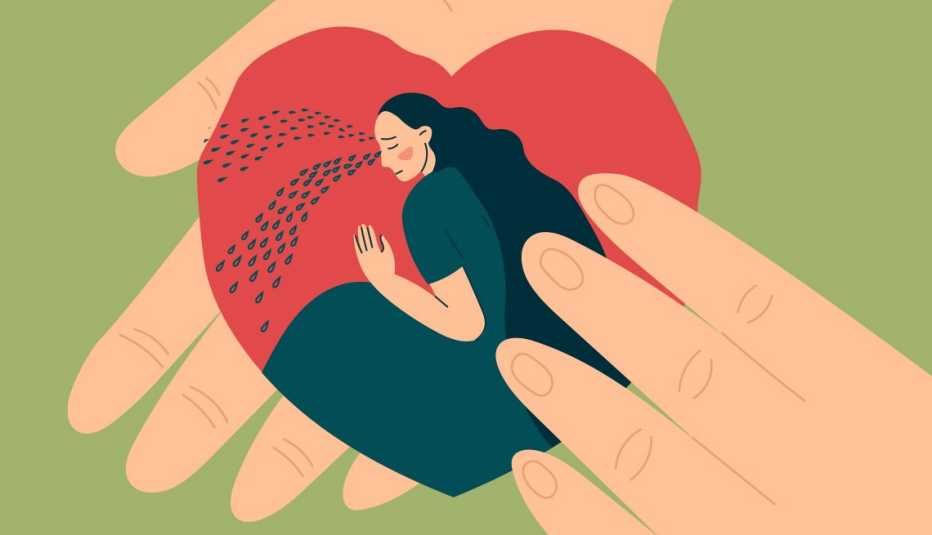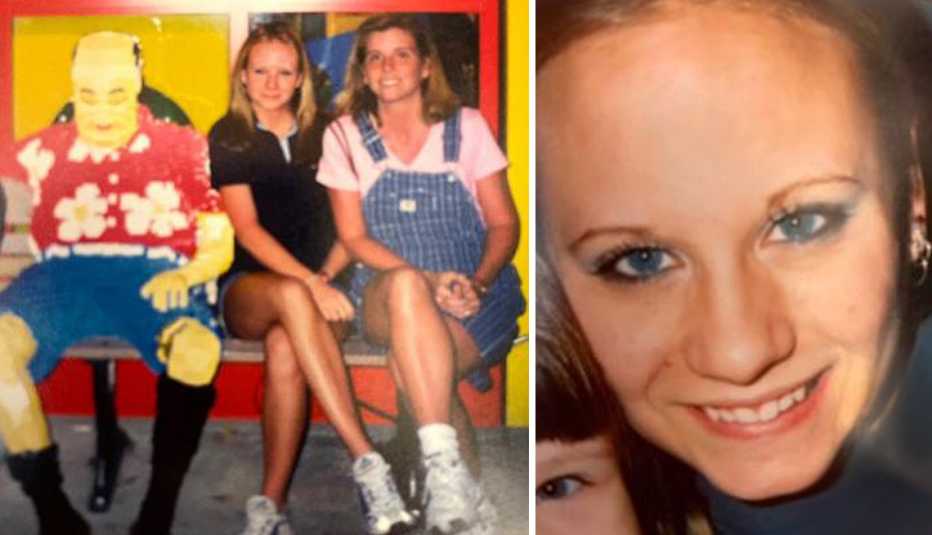AARP Hearing Center


I’m staring at a picture of our youngest daughter’s college graduation in May. Our smiling 22-year-old graduate, Alexis, is in the middle holding her flowers and her cap, flanked by her 33-year-old brother, Joe, her 26-year-old sister, Elise, her dad and me.
Someone is missing: our 39-year-old daughter, Nicole, and what would most likely be members of her own family. We lost Nicole 17 years ago when she was 22 to an accidental overdose after a party at the beach. In 17 years, we’ve pushed on, but it hasn’t been easy, and there are times when I, at age 60, feel like I’ve been swept back in time to that dreadful rainy early October day.
Bringing grief into the open
Last year, on National Grief Awareness Day, Aug. 30, the late Lisa Marie Presley published a heartrending essay in People about her grief after the death of her son Benjamin. I immediately connected with her despair and loneliness.
Presley was right, we need to talk about grief. Especially child loss. We’re all about the mental health crisis until it involves the death of a child. Following the immediate aftermath, once the dust settles, friends and family will go about their lives and grow distant, as if we’re some maladjusted harbinger of death. It’s only when you discover another parent who has had the misfortune to join this dystopian club of wounded souls that you feel safe to talk and get real about your emotions after years of being on mute.


“It can be overwhelming when someone thinks about a person losing their child,” says Margaret Albert, a counselor with Duke Hospice Bereavement Services in Durham, North Carolina. But the more we talk about it and write about it, she says, the more it becomes a part of the conversation. “People are so scared of this, of losing a child, and they should be, it’s a natural fear,” Albert says. But we need to be more open about it.
An overwhelming loss
I’ve experienced a lot of death in my lifetime: grandparents, parents, aunts, uncles and cousins. This is different. The loss of a child rips out your heart and stomps on your dreams.



































































More From AARP
Grappling With Grief When a Grandchild Dies
Sometimes grandparents are the “forgotten mourners”When a Dying Friend Keeps Her Distance
Death doula explains how to respect and accept different end-of-life choices
What I Learned From My Mom’s Approach to Death
Final months filled with grief, gratitude and life lessons